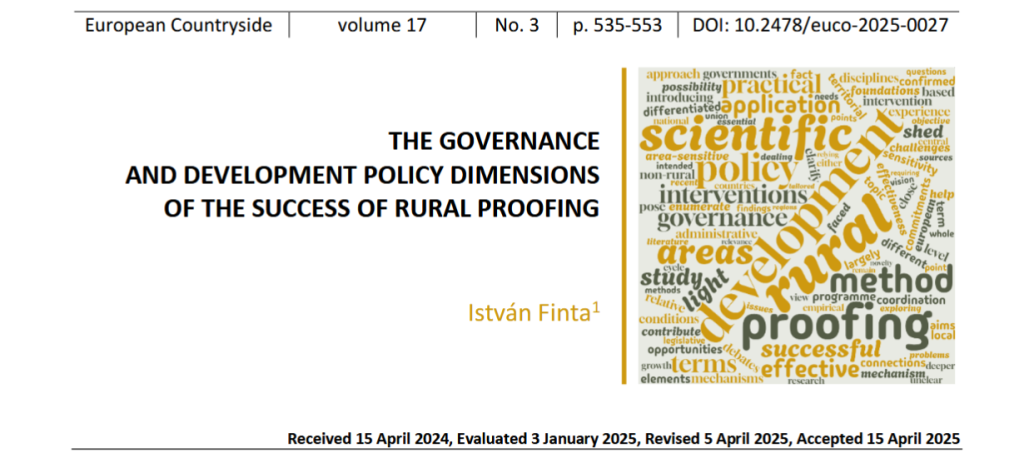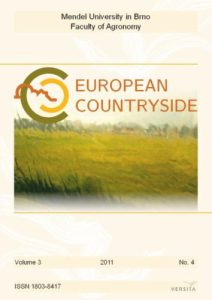István Finta
Abstract
Faced with different problems and growth opportunities, regions pose challenges for national central governments and even for the European Union as a whole, requiring the development of area-sensitive interventions such as rural proofing. Due to the relative novelty of this method, many questions remain unclear either in terms of the effectiveness of practical application or in terms of exploring deeper scientific connections. One of the aims of the study – with the help of literature and policy sources – was to clarify the foundations of this method in scientific disciplines, while the main objective of the others, relying largely on empirical experience, was to enumerate the conditions for successful application, which could shed new light on the governance and development policy mechanisms that are essential elements of rural proofing. The study points out that rural proofing can be successful not only in rural areas, as this method is based on differentiated interventions tailored to local needs, which can also be effective in non-rural areas. The relevance of the topic, both from a scientific and practical point of view, is not only confirmed by recent commitments at EU level (legislative programme, Long Term Vision for Rural Areas), but also by the fact that more and more countries and more and more research are dealing with the possibility of introducing rural proofing. The findings are not intended to close issues, but to shed new light on this approach, which will contribute to further scientific debates and the development of a much more effective central-territorial intervention mechanism.
Keywords: governance methods, administrative cycle, EU development policy, territorial sensitivity, coordination



